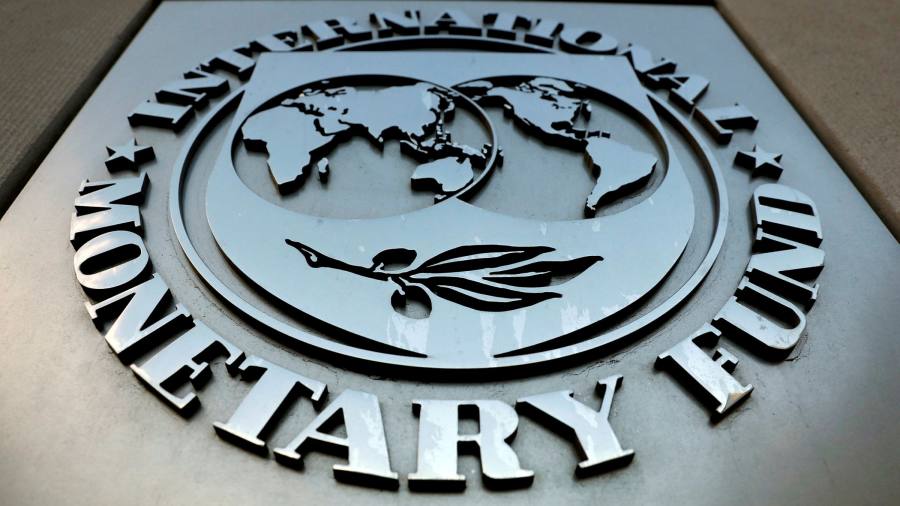[ad_1]
Kevin P. Gallagher is professor and director of the Global Development Policy Center at Boston University’s Pardee School of Global Studies. He serves as the co-chair of the Think 20 Task Force on International Finance to the G20 Italy for 2021. In this article he argues the current IMF mechanism for adding surcharges to the debt interest costs on its loans should be abandoned to help the global economic recovery.
The IMF’s most important function is to provide emergency financing to countries in dire economic straits that are unable to pay their creditors. In response to the COVID-19 pandemic, the IMF has already approved 119 programs to 85 countries at a cost of over $100bn.
But, as it turns out, the countries that need the most from the IMF will have to pay over $4bn in extra surcharges on top of interest payments and fees from the beginning of the crisis through the end of 2022. What’s more, the IMF estimates the surcharges have become the Fund’s largest source of revenue, accounting for almost half of revenues during this period. At exactly the same time, developing countries need every penny they can muster to fight the virus, protect the vulnerable, and mount an inclusive and green recovery. Something has gone horribly wrong with the policy.
The Covid pandemic triggered the worst economic downturn since the Great Depression. The World Bank estimates that upwards of 124m people were pushed into extreme poverty in 2020, with 8 out of 10 of those newly poor living in middle-income countries. Federal debt is a particularly acute problem here. For instance in Nigeria, more than 50 per cent of government revenue is being used to service international debts rather than combat the virus.
The region of Latin America and the Caribbean has been one of the hardest hit, with more than 500,000 deaths and an economic downturn of 7.7 per cent in 2020. In per capita terms, the region has been pushed back to 2010 levels, effectively causing yet another lost decade. The United Nations estimates that many countries in the region are deploying 30 to 70 per cent of shrunken government revenue to pay creditors.
Even though middle-income countries are among the hardest hit, the G20’s new architecture to help countries alleviate debt distress — the Debt Service Suspension Initiative and the Common Framework — only provide debt suspension and relief to the low-income countries. In addition, the G20 schemes only apply to bilateral official creditors such as members of the Paris Club and China, even though two-thirds of middle-income-country debt is held in international financial institutions such as the IMF.
The surcharges work in two ways. One is relative to the size of the emergency loan (level-based) and the other is on the length of the loan (time-based). The level-based surcharges are set at 200 basis points on outstanding credit above 187.5 per cent of each country’s assigned IMF quota. The time-based surcharges are an additional 100 basis points when IMF credit has been outstanding for more than 36 to 51 months, depending on the structure of the programme. These surcharges can often lead to debt costs as much as tripling.
Currently, 30 per cent of the countries with IMF funding face surcharges in the midst of the crisis, including Angola, Argentina and Georgia. And more are due to begin paying. This is just when many middle-income countries still don’t have access to vaccines and will continue to suffer the health, economic, and financial pain of the crisis.
These surcharges have been a subject of tense discussion dating back to their origins, when they were first levied after the Asian financial crisis of the late 1990s. The rationale behind them is to limit the demand for IMF programmes, to encourage borrowers to pay back ahead of schedule, and to generate income for the IMF.Â
Of course, it is important for member countries not to become over-reliant on the IMF for liquidity, but regressive and procyclical surcharges are not the way to create such incentives amid a global economic crisis.
The unintended consequences are two-fold. First, the surcharges disproportionately affect middle income countries with lower quotas that, by definition, need both extensive IMF financing to repay and longer repayment periods to recover from crises. Second, they require borrowing members to pay more at exactly the moment when they are most squeezed from market access in any other form.Â
A better way to ensure that countries don’t come to the IMF for larger and longer-term loans is to improve the design of the programmes and advice so that countries can recover from crises quicker. Additionally, a new and appropriately distributed quota allocation is needed.
Immediately, however, the IMF should suspend these surcharges to help countries recover from the virus, and to give the IMF the incentive to rethink its broken business model.
[ad_2]
Source link





